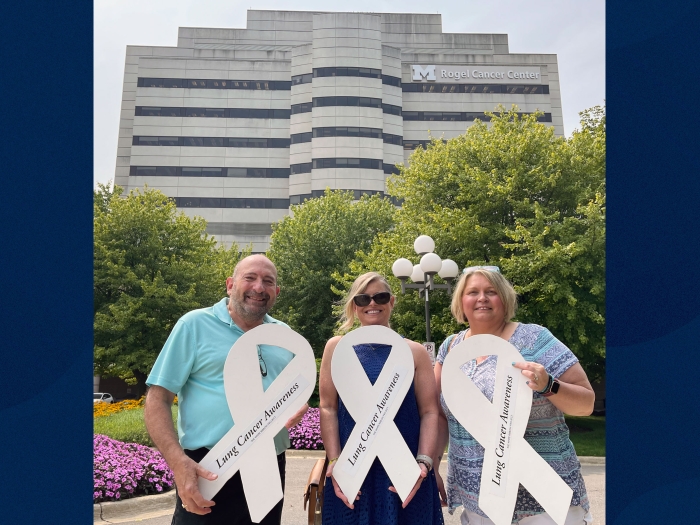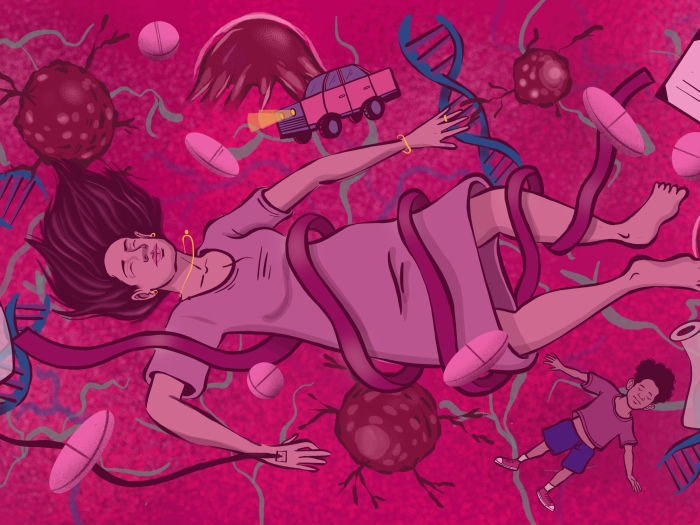But motivations for undergoing genetic testing remain unclear, researchers found
11:07 AM
Author |

Barriers to genetic testing for patients with cancer may vary based on demographics and other personal factors, a pilot project associated with a large clinical trial found.
In a University of Michigan study, women, for instance, were more likely to report worries about the implications of their test results for family members and how their results could affect their health and life insurance.
Age, time since cancer diagnosis, having a child, having depression and having a cancer related to a BRCA gene also affected patients’ concerns around genetic testing. The researchers correctly predicted the majority of these factors.
Yet the researchers also found that the motivations for patients to undergo genetic testing were not associated with any of the factors they studied, except for identifying as female (women could better foresee the health benefits of genetic testing, including an understanding that knowing their genetic status could help them plan their cancer treatment and increase their sense of personal control.)
“The reasons individuals are motivated to pursue genetic testing may be particularly personal, and current research may not have captured them appropriately,” said Erika Hanson, a clinical research coordinator in the Division of Genetic Medicine at Michigan Medicine and the first author of the study. “Future studies are needed in this area.”
Building up to a clinical trial
About 5% to 10% of all cancers have a hereditary cause yet many patients who meet guidelines for cancer-related genetic testing do not undergo the tests.
The U-M researchers wanted to investigate why — and what compelled folks who did get genetic testing to do so to see if the researchers could encourage more patients with cancer to be genetically tested.
We were interested in the emotional responses after patients had completed testing and how those responses corresponded to their initial barriers to give clinicians a more well-rounded picture of the psychosocial factors impacting their patients.”
- Erika Hanson, clinical research coordinator, Division of Genetic Medicine
This study around barriers and motivation to genetic testing served as the precursor to a larger clinical trial that will do just that. The Michigan Genetic Hereditary Testing, also known as MiGHT, trial plans to test two different approaches to promoting genetic testing for patients with cancer, including a virtual navigation system and an interviewing technique that identifies barriers and motivations to changing a health behavior.
“While digital health tools and telephone-based coaching have been successful in motivating behavior change across a wide range of health issues, these strategies have not yet been integrated into care delivery for patients at risk for hereditary cancer syndromes,” said Lynette Hammond Gerido, Ph.D., M.P.H., M.B.A., a postdoctoral research fellow at the University of Michigan School of Public Health and the first author of a paper outlining the protocol for the MiGHT trial. “The MiGHT study represents a patient-centered approach to increasing the uptake of clinical genetic testing using interactive, web-based technology and motivational interviewing.”
Giving clinicians a well-rounded picture of barriers
The MiGHT trial will take five years, but this more recent study gives the researchers some earlier insight that they can pass along to providers.
“We were interested in the emotional responses after patients had completed testing and how those responses corresponded to their initial barriers to give clinicians a more well-rounded picture of the psychosocial factors impacting their patients,” Hanson said.
Here’s a breakdown of the results:
- Younger participants in the study tended to be more emotional about undergoing genetic testing and expressed more concerns about the impact of the results on their family members.
- Those who were recently diagnosed with cancer weren’t thinking as much about the potential effects of genetic testing on their insurance status and were less emotional about the process overall.
- People with a BRCA-related gene had higher social and interpersonal concerns. These included believing that, if they carried genes with mutations, they would feel singled out or ashamed and that it would cause others, including partners and family members, to view them negatively.
- Those with higher depression scores had the strongest concerns in the most spheres the researchers studied, namely the emotional, social and interpersonal and family areas.
Additional authors include Emerson Delacroix, Sarah Austin, Grant Carr, Kelley M. Kidwell, Elizabeth Bacon , Lynette Hammond Gerido, Jennifer J. Griggs, Elena M. Stoffel and Ken Resnicow, all of the University of Michigan.
Funding: NIH/NCI U01 CA232827-05: Innovative Approaches to Expand Cancer Genetic Screening and Testing for Patients & Families in a Statewide Oncology Network through Community, State, & Payer Partnerships
Paper cited: “Psychosocial factors impacting barriers and motivators to cancer genetic testing,” Cancer Medicine. DOI: 10.1002/cam4.570

Explore a variety of health care news & stories by visiting the Health Lab home page for more articles.

Department of Communication at Michigan Medicine
Want top health & research news weekly? Sign up for Health Lab’s newsletters today!





